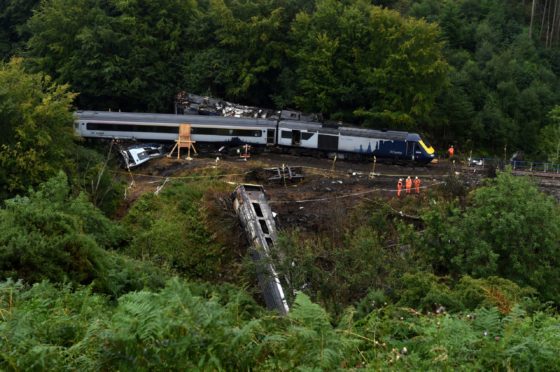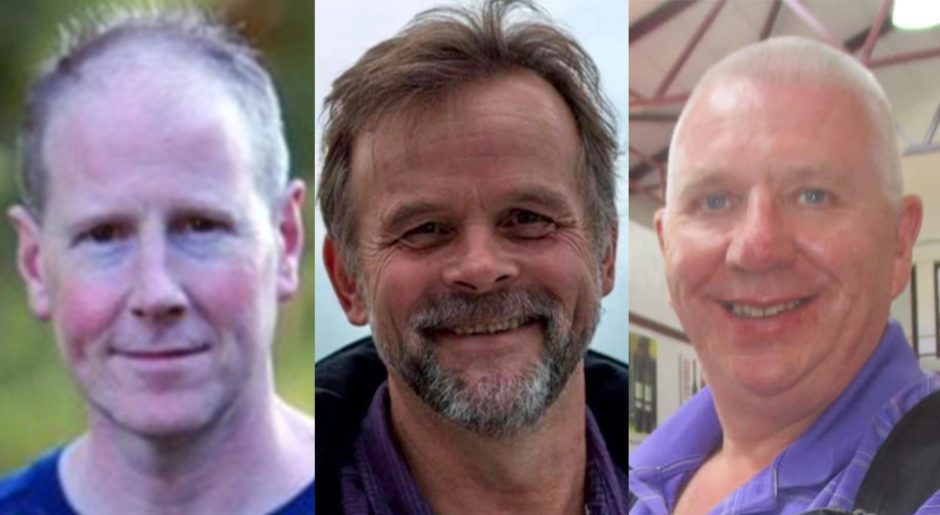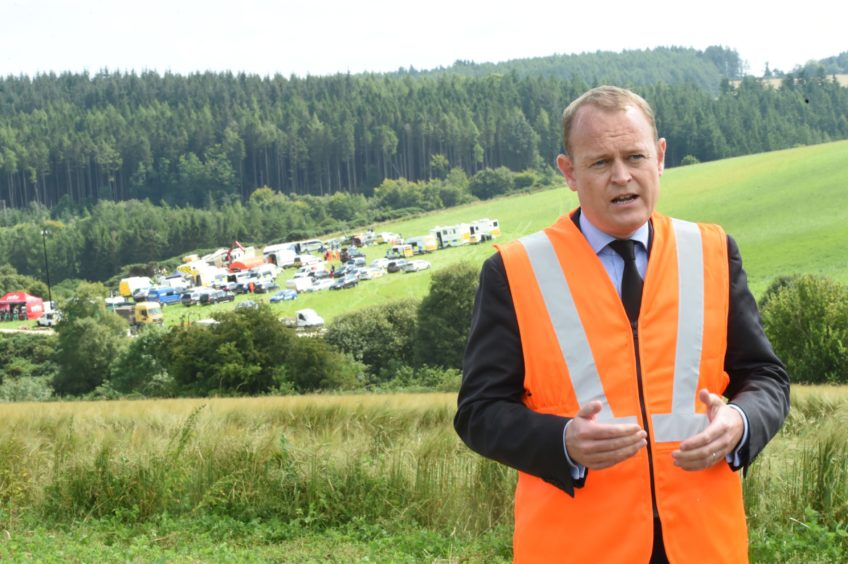Scot Rail’s boss said Scotland should “act fastest” on safety recommendations brought about by last year’s fatal derailment near Stonehaven, as “climate change is affecting Scotland more than the other three nations of the UK”.
Alex Hynes, the head of Scot Rail, told this week’s meeting of the regional transport body Nestrans the disaster at Carmont on August 12 2020 was the “worst day” of his life.
The tragedy resulted in the deaths of Brett McCullough, Donald Dinnie and Chris Stuchbury after the 6.38am service from Aberdeen to Glasgow hit a landslip.
On the day of the derailment, around 50mm (1.9 inches) of rain fell in the Carmont area between 5am and 9am, during a period of thunderstorms and extreme weather that caused flooding throughout the north-east.
In the aftermath of the incident, Network Rail commissioned two reviews to help prevent similar tragedies in the future, including a Weather Advisory Task Force (WATF) headed by Professor Dame Julia Slingo on how best to understand and manage adverse and extreme weather events.
Dame Slingo’s report put forward five major recommendations for Network Rail to deliver “greater safety and satisfaction for its passengers”, including a recommendation to “build its professional competencies in meteorology, hydrology and climate change”.
“A challenge of a generation”
Mr Hynes said in the Nestrans meeting: “Clearly one of the reasons why we’ll remember last year were the terrible, terrible events of August 12, where the accident at Carmont meant that Brett, Donald and Christopher were tragically killed.
“That wasn’t just the worst day of my professional life, it was the worst day of my life.
“We are making sure that we take every single step we can to avoid a similar accident happening again.
“Clearly it’s being independently investigated, but we have already changed the way we operate the railway here in Scotland as a result of that.
“I think one of the most stark findings of some of the taskforces which were commissioned immediately after the accident was that climate change is affecting Scotland more than the other three nations of the UK.
“That is a challenge of a generation.
“Climate change is not something happening to somebody else somewhere else, it’s happening now, in Scotland, and we have to meet that challenge.”
Dame Julia’s Report
In her summary of the report by the AWTF, Dame Julia said that “major changes are needed” within Network Rail to make it “more resilient and better prepared for adverse weather today and into the future”.
The report said: “There is no doubt that climate change is affecting the UK and shifting the odds of certain high-impact weather events.
“This means that infrastructure that was previously designed to be resilient to the UK’s past weather and climate may no longer be so.
“This is especially so when we consider that much of the UK’s rail network is over a century old.”
The report showed there are “indications of small increases” in annual mean rainfall across the UK since the 1970s, “especially for Scotland where there has been an 8% increase in the last decade compared to the 1961 to 1990 long-term average”.
It also highlighted a summary of “high-risk weather patterns” that can lead to landslides or earthwork failures for different parts of the UK according to Met Office data.
Across the Northern and Southern Scotland regions, it noted seven high-risk patterns each, and nine for Eastern Scotland.
All other UK regions analysed had just five or six.
“We need to act fastest”
Mr Hynes added: “Clearly the infrastructure is the responsibility of Network Rail, and we know that it was an extreme rainfall event which led to the washout, which lead to the derailment, which lead to the terrible, terrible loss of life.
“These events are becoming more and more frequent across the GB Rail network, and therefore Andrew Haines, who is my Network Rail boss, commissioned two taskforces by two eminent worldwide specialists.
“One by Lord Robert Mair on earthworks management, and one by Dame Julia Slingo on how the railway uses weather data and forecasting capability.
“On the management of earthworks, Lord Robert Mayor said what Network Rail is really rather good, but you can potentially learn from countries further away; Japan and Hong Kong for example.
“We’re working through those recommendations as we speak.”
He continued: “What Dame Julia Slingo said on the weather front is that the railway has fallen behind other sectors like highways and aviation on how to use weather data to manage the operations safely and reliably, and we’ve already taken steps to address that.
“But one of the things she has demonstrated is we know Scotland has interesting weather, we know that climate change is a global phenomenon, but what I saw for the first time is data which demonstrated that climate change is affecting Scotland more than the other three nations of the UK.
“So Scotland has absolutely got to be at the forefront of implementing recommendations from the Dame Julia Slingo and the Lord Robert Mair reports, because we need to act fastest.”


